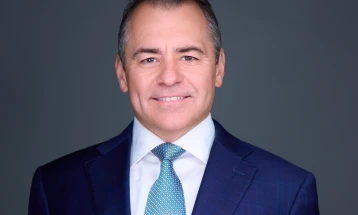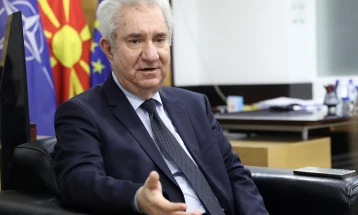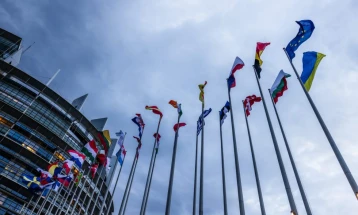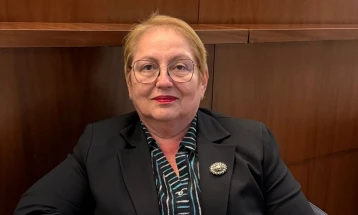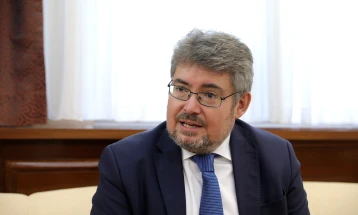What’s in store for the European Union in 2024?
- In 2024, elections will take centre stage – not only domestically but also EU-wide as well as in the USA and Russia
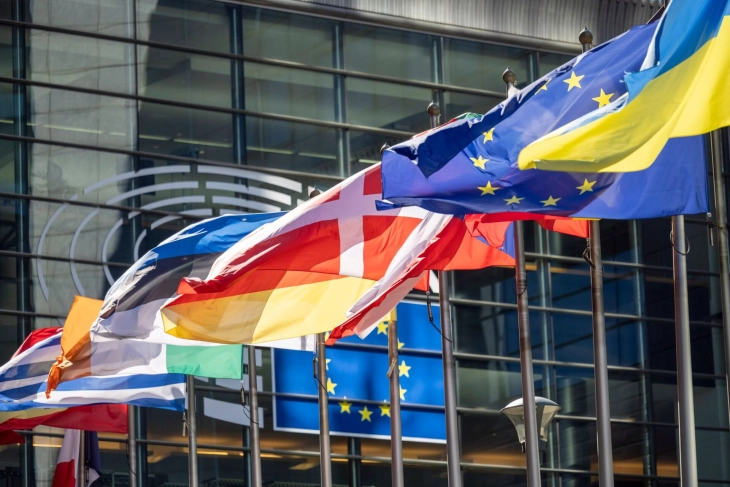
1 January 2024
ENR - Brussels
by AFP, AGERPRES, APA, ATA, Belga, BTA, dpa, EFE, FENA, MIA, STA, TASR | 29.Dec 2023 | Key Story
In 2024, elections will take centre stage – not only domestically but also EU-wide as well as in the USA and Russia. The Union is looking at elections in early June. Many of the present discussions revolving around migration, enlargement or the budget will remain hot-button issues. The beginning of the year is marked by the Belgian presidency of the Council of the European Union beginning as well as an extraordinary EU Council Summit. What are the individual countries looking at?
From January 1, Belgium will take over the EU Council presidency from Spain for the first half of 2024. This will be the main focus of the federal national government. With the political agreement on the Pact on Migration and Asylum reached and parliamentary approval of the bloc’s budgetary rules likely, ministers consider themselves to have a big responsibility on the EU stage. The Belgian presidency will also have to prepare the debate on future enlargement.
Spain, concluding its presidency, will start 2024 with a newly launched left-wing government which had been difficult to form. To unblock governability, Prime Minister Pedro Sánchez has accepted a law to amnesty those involved in the Catalan independence process who have outstanding accounts with justice.
This amnesty will set the political agenda for 2024. The European Commission already stated it will carry out a compliance check with the rule of law. Spain is also facing the possible return of former Catalan president Carles Puigdemont to the country and the potential protests this may spark.
Elections, elections, elections
Between June 6 and 9, the citizens of the 27 EU member states will go to the polls and vote in the European Elections. Many anticipate a stark move to the right in the European Parliament.
In France, the subject of migration risks being at the heart of the campaign for the European election, which will also serve as a test, two years into President Emmanuel Macron’s second five-year term. The debate will pit the far-right Rassemblement National (National Rally) party, supported by Marine Le Pen and generally opposed to immigration, against Renaissance which, with several centrist parties, supports Macron. Renaissance had to make concessions to the right to get a more balanced but still controversial immigration law adopted by parliament on December 20.
Besides politics, France is hosting the Olympic Games from July 26 to August 11 and is also looking at the reopening of the Notre-Dame cathedral in Paris on December 8.
Spain may face a similar fate: There, the right-wing opposition may try to turn the EU elections into a first plebiscite for the newly formed government. The control of irregular migration, shortage of affordable housing, high youth unemployment or the control of the public deficit will be on the table in 2024 Spain.
The campaign for the European elections in Slovenia will very probably focus on issues that are most pressing to citizens: In addition to the cost of living and inflation, which is currently one of the highest in the Euro area, these will most certainly include migration, the (non)functioning of the Schengen area as well as topics like the assistance to Ukraine and the EU’s stance in view of the resolution of the Middle East conflict.
Besides the European elections, the US presidential election on November 5, 2024 will mark an important event in terms of foreign policy. If Donald Trump were to be elected again, it is rumoured that US support for Ukraine could be scaled back, which would play into the hands of Russian President Vladimir Putin. It is questionable whether the Europeans can and want to provide enough support for Ukraine in the long term without the USA in order to counter Putin’s expansionist endeavours.
In Ukraine, the presidential election originally planned for the beginning of March was cancelled due to the continuing martial law as the war with Russia is still ongoing. At the beginning of November, president Volodymyr Zelensky emphasised “that elections are not appropriate now.”
Russia however will hold its presidential elections in March 2024. Putin’s opponents are repeatedly complaining that the election commission is rejecting the registration of candidates claiming formal errors, such as anti-Kremlin journalist Yekaterina Duntsova’s initiative group recently. It is considered certain that Putin will emerge victorious in his fifth run at the presidency. The Russian president had the constitution amended specifically in order to be able to run again. According to the current version of the constitution, the 71-year-old can run for the last time in 2030.

Domestic elections around Europe in 2024
In addition to the upcoming European Elections, multiple European countries ask their citizens to vote in a range of domestic elections, too.
In Spain, regional elections will be held in Galicia which is a stronghold of the Partido Popular (PP) and in Basque Country which is home to parties supporting PM Sánchez.
In Belgium, citizens will vote in federal and regional elections. In October, citizens will be called to the ballot box a second time to vote in local elections.
Romania is looking at an atypical election year. In 2024, citizens are expected to vote in four types of elections – presidential, parliamentary, local and European elections.
In Slovakia too, 2024 will be an important year in terms of domestic politics. In spring, citizens will elect a new head of state after five years.
The alpine republic of Austria calls citizens to the ballot boxes to vote in several state and city elections. The country will also elect a new parliament in 2024.
Germany is also facing several types of elections, among those regional elections in which state parliaments will be elected, as well as elections of district and municipal councils as well as mayors.
Besides politics, Germany will host the European Championships of handball and football in January and July/August respectively.
North Macedonia is looking at both presidential and parliamentary elections next year. The presidential elections will be held on April 24, while the potential second round is expected to be held alongside the parliamentary elections on May 8.

Green light for EU enlargement means domestic restructuring
Countries holding candidate status are aiming to further pave their way to become a member state.
In North Macedonia for example, efforts include constitutional amendments in order to include minorities in the preamble. The country also aims to implement reforms related to the rule of law, public administration or protection of members of minority communities. At the EU Council summit in December, it was concluded that the EU is ready to complete the opening stage of accession talks with the country – as soon as the commitment to adopt the constitutional amendments is implemented. However, this amendment remains blocked in parliament for now, with possible shifts only expected after the elections.
Bosnia and Herzegovina (BiH), which received candidate status a year ago, is coming out of 2023 with a conditional green light to open negotiations when the necessary level of compliance with membership criteria is achieved. The Commission will report about this to the EU Council by March 2024. To be able to negotiate, the country needs to adopt reform laws at the beginning of next year which would strengthen the fight against corruption, build legal certainty and provide arguments that the country is making progress in the implementation of 14 key priorities.
On the other hand, European leaders called on the authorities of the Republika Srpska entity to withdraw disputed laws, which will cause BiH to regress in terms of fundamental freedoms. Areas of concern are a law that criminalises defamation, then the law on ‘foreign agents’ that provides for special surveillance for non-governmental organisations that are financed from abroad, as well as the law that the decisions of the high representative will not be implemented in this entity.
Next year, Albania awaits the opening of negotiations for the first group of chapters. In December, the country completed the screening process of harmonising legislation with the European Union as the first stage of negotiations that were opened in July 2022. Prime Minister Edi Rama views making rapid progress towards the EU as an imminent challenge, stressing that Albania today possesses over 50 percent of the capacity to be considered ready for membership in the European Union. While appreciating the work of the Albanian negotiators, he emphasised that “we are still at the beginning of the process.”

Joining the Eurozone and Schengen
Romania is hoping to settle the Schengen dossier next year, after failing to achieve this goal in 2023, as Austria did not change its position after its veto expressed in 2022. After the Justice and Home Affairs (JHA) Council in early December, Romanian officials announced that Austria had softened its position and agreed to Romania joining the Schengen Area for air travel.
Bulgaria’s initial plan was to join the Eurozone in 2024. However, in February 2023, then caretaker finance minister Rositsa Velkova said the country had not met all commitments it made as it entered the EU’s Exchange Rate Mechanism (ERM II) and the inflation criterion, which is why it was moving the target date for accession to January 1, 2025.
Bulgaria has adopted an action plan for the transition away from the Bulgarian Lev currency. A steering committee in which Eurosceptics play a key role collected enough votes in favour of a petition for a referendum asking Bulgarians to back keeping the Lev as the only legal tender until 2043. The number of votes backing the initiative made the referendum imminent but in early July 2023 parliament rejected it, arguing that the wording of the question was unconstitutional. Vazrazhdane, a nationalist and far-right party, took the matter to the Constitutional Court where the case is still pending.
This article is published weekly. The content is based on news by agencies participating in the enr.
Photo: ENR
